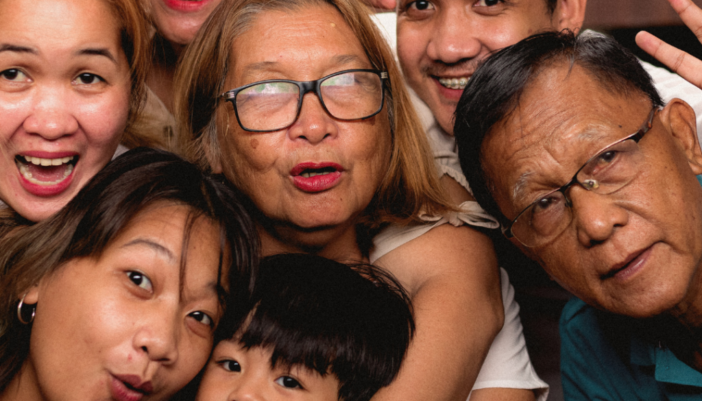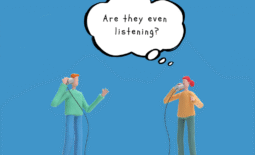When Family Teaches Us the Wrong Kind of Love: Understanding Blurred Boundaries and Rescuing Behaviors
Growing up, many of us are taught that love means being there for our family no matter what, sacrificing our own needs, and always stepping in to help, even at the cost of our own well-being. While these messages often come from a place of care, they can also lead to a lifetime of blurred boundaries, rescuing behaviors, and unhealthy dynamics. When family members equate love with over-involvement and control rather than healthy detachment and genuine love, it can profoundly shape how we navigate relationships in adulthood.
I think it’s important to look at how our families might unintentionally teach us harmful patterns around love and care, leading us to confuse enmeshment with connection and control with compassion. We’ll look at how these patterns develop, their impact on our adult relationships, and what it truly means to love with healthy detachment and respect.
- Blurred Boundaries: The Foundation of Confusion
In many families, the lines between where one person ends and another begins are often unclear. We might hear things like, “We’re family; we do everything together,” or “You should always be there for your family, no matter what.” These messages, while well-intentioned, can blur the boundaries between individuals, creating a sense of obligation that overrides personal needs and preferences.
Blurred boundaries often lead to a lack of personal space and independence. For example, if a parent constantly steps in to solve a child’s problems or manage their emotions, the child might grow up believing that they are responsible for others’ feelings and well-being. This can lead to adult relationships where they either take on too much responsibility for others or expect others to do the same for them. In both cases, genuine connection and love become muddled with control and dependency.
- Rescuing Behaviors: When Helping Hurts
Rescuing is another behavior often mistaken for love in many families. Rescuing involves stepping in to save someone from their problems, mistakes, or emotions, often at the cost of the rescuer’s own needs and boundaries. While rescuing can seem like a noble act of care, it actually disempowers the person being “rescued” and creates a dynamic of dependency and control. It’s like tying someones shoes for them, but tying them – together – so they end up falling harder.
When families teach us that love means rescuing, we learn to believe that we are responsible for fixing others’ problems. This can prevent us from allowing others to experience their own growth, learn from their mistakes, and build their resilience. It can also lead to resentment and burnout, as we stretch ourselves thin trying to manage everyone’s needs and crises. True love, however, involves supporting others while allowing them to face their own challenges and grow from them.
- Confusing Control with Care: The Impact on Adult Relationships
When our families model these behaviors, we may grow up confusing control with care. We might believe that to love someone means to be involved in every aspect of their life or to constantly be on guard to protect them from harm. This mindset can lead to relationships where we overstep boundaries, try to manage our partners’ or friends’ lives, or feel immense guilt when we can’t solve their problems.
Moreover, this confusion can make us resistant to healthy detachment, which is actually a key aspect of genuine love. Healthy detachment involves caring deeply for someone while respecting their autonomy and trusting them to handle their own lives. It’s about recognizing that love doesn’t mean fixing, rescuing, or controlling, but rather supporting and empowering others to grow in their own way.
- Learning Healthy Detachment and Genuine Love
To unlearn these harmful family patterns, we first need to recognize them for what they are—well-meaning but misguided attempts at love and care. Healthy detachment requires setting clear boundaries, understanding our limits, and recognizing that we are not responsible for others’ emotions or choices. It involves letting go of the need to control or rescue and instead fostering a sense of trust and respect in our relationships.
Genuine love means supporting others without overstepping, allowing them the freedom to make their own decisions, and loving them enough to let them face their own consequences. It also means taking care of ourselves, honoring our own needs and boundaries, and understanding that self-care is not selfish but necessary for healthy, balanced relationships.
Our families play a powerful role in shaping how we understand love and care. While their intentions are often rooted in love, the lessons they impart can sometimes lead to unhealthy patterns that affect us well into adulthood. By recognizing these patterns, we can begin to shift our understanding of love from one of control and rescuing to one of healthy detachment and genuine care. It’s not easy to change these ingrained habits, but it’s a crucial step towards creating healthier, more fulfilling relationships where both parties can thrive independently and together.
It’s really about redefining love—not as an act of control or rescue, but as a practice of trust, respect, and healthy boundaries. In doing so, we not only free ourselves but also offer the people we care about the greatest gift of all: the freedom to be themselves.




